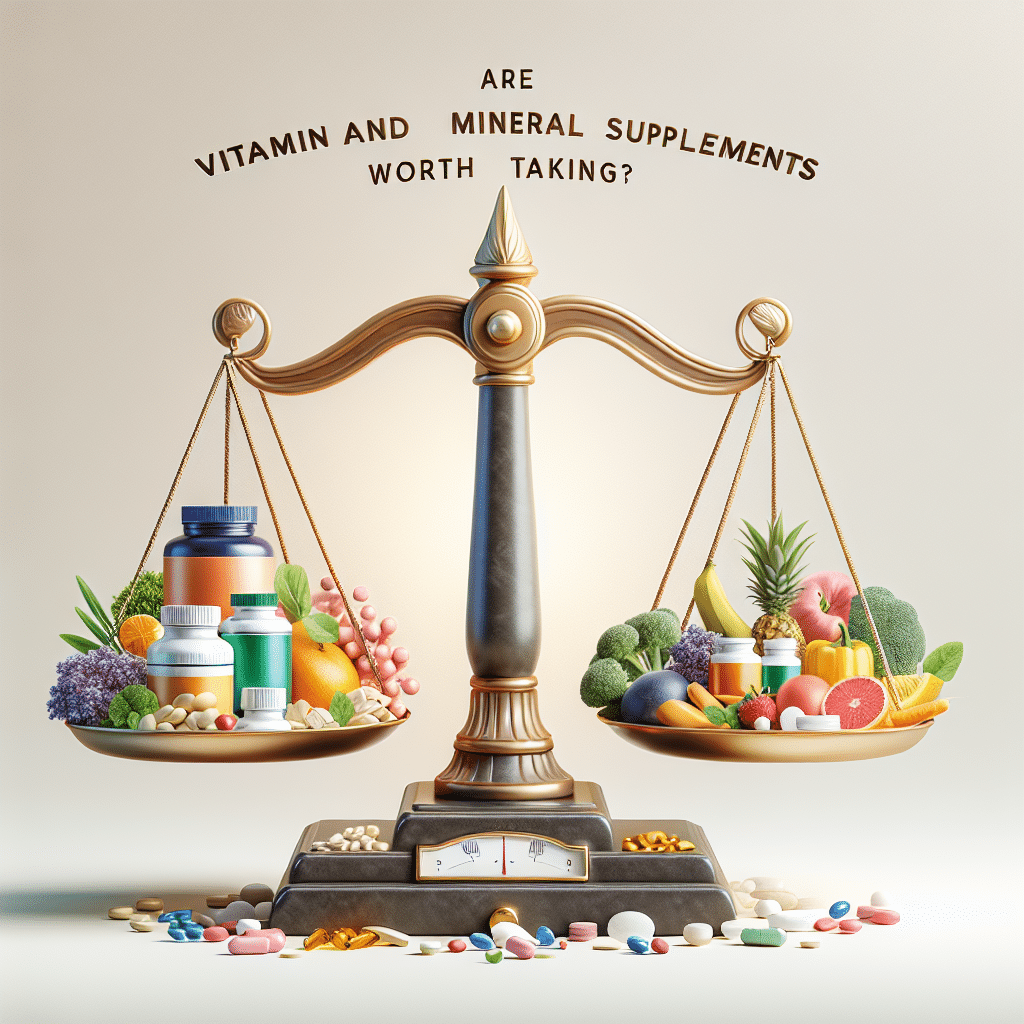Are Vitamin and Mineral Supplements Worth Taking?
-
Table of Contents
- Vitamin and Mineral Supplements: Are They Worth Your Investment?
- The Role of Vitamins and Minerals in Health
- Understanding Supplement Efficacy
- When Supplements Make Sense
- Case Studies and Research Findings
- Statistics on Supplement Usage
- Are Supplements a Substitute for a Balanced Diet?
- Considering the Risks
- Regulatory Considerations
- Conclusion: Balancing Supplements with Diet
- ETChem: Your Trusted Source for Protein Supplements
Vitamin and Mineral Supplements: Are They Worth Your Investment?
In an era where health consciousness is at an all-time high, many individuals turn to vitamin and mineral supplements to bolster their nutritional intake and enhance their overall well-being. The global supplement industry has seen a significant surge, with a plethora of products promising everything from boosted immunity to increased energy levels. But the question remains: are these supplements truly worth taking, or are they merely a product of clever marketing?
The Role of Vitamins and Minerals in Health
Vitamins and minerals are essential nutrients that play critical roles in the body’s overall function. They aid in growth, digestion, nerve function, and much more. While a balanced diet should provide the necessary amounts of these nutrients, certain circumstances such as dietary restrictions, health conditions, or even the quality of the food supply can lead to deficiencies.
Understanding Supplement Efficacy
Supplements are intended to provide nutrients that may not be consumed in sufficient quantities. However, the efficacy of these supplements can vary based on several factors:
- Formulation and bioavailability
- Individual health status and nutrient needs
- Quality and purity of the supplement
- Regulatory oversight and manufacturing standards
When Supplements Make Sense
There are specific scenarios where taking supplements can be particularly beneficial:
- Pregnancy: Supplements like folic acid are crucial to prevent birth defects.
- Age-related dietary changes: Older adults may need vitamin D and calcium supplements to maintain bone health.
- Dietary restrictions: Vegans may require vitamin B12 supplements due to its scarcity in plant-based foods.
- Medical conditions: Certain health issues can lead to deficiencies that supplements can address.
Case Studies and Research Findings
Several studies have shed light on the benefits and limitations of supplements. For instance, research has shown that vitamin D supplements can improve bone health in older adults, while other studies suggest that antioxidant supplements may not reduce the risk of chronic diseases as once thought.
Statistics on Supplement Usage
According to the National Institutes of Health, over half of all Americans take one or more dietary supplements daily. This statistic reflects the widespread belief in the benefits of supplements, but it also raises questions about their necessity for the general population.
Are Supplements a Substitute for a Balanced Diet?
It’s crucial to understand that supplements should not replace whole foods. A diet rich in fruits, vegetables, lean proteins, and whole grains typically provides adequate nutrients for most people. Supplements can fill in the gaps but cannot replicate the complex mix of nutrients and fiber found in natural food sources.
Considering the Risks
While supplements can offer benefits, they are not without risks. Overconsumption can lead to toxicity, and some supplements can interact with prescription medications. It’s essential to consult with a healthcare provider before starting any supplement regimen.
Regulatory Considerations
The supplement industry is subject to less stringent regulations than pharmaceuticals. This lack of oversight can lead to inconsistencies in product quality and efficacy. Consumers should look for third-party certifications to ensure they are getting a reliable product.
Conclusion: Balancing Supplements with Diet
In conclusion, while vitamin and mineral supplements can be beneficial for certain individuals, they are not a one-size-fits-all solution. A balanced diet remains the cornerstone of good health, and supplements should be used judiciously to address specific nutritional needs or deficiencies. Consulting with healthcare professionals and choosing high-quality products are key steps in making informed decisions about supplement use.
ETChem: Your Trusted Source for Protein Supplements
If you’re considering protein supplements to complement your diet, ETChem offers a range of high-quality collagen products. Their extensive selection caters to various industries and individual needs, ensuring that you receive the best protein supplementation available.
About ETChem:
ETChem, a reputable Chinese Collagen factory manufacturer and supplier, is renowned for producing, stocking, exporting, and delivering the highest quality collagens. They include marine collagen, fish collagen, bovine collagen, chicken collagen, type I collagen, type II collagen and type III collagen etc. Their offerings, characterized by a neutral taste, instant solubility attributes, cater to a diverse range of industries. They serve nutraceutical, pharmaceutical, cosmeceutical, veterinary, as well as food and beverage finished product distributors, traders, and manufacturers across Europe, USA, Canada, Australia, Thailand, Japan, Korea, Brazil, and Chile, among others.
ETChem specialization includes exporting and delivering tailor-made collagen powder and finished collagen nutritional supplements. Their extensive product range covers sectors like Food and Beverage, Sports Nutrition, Weight Management, Dietary Supplements, Health and Wellness Products, ensuring comprehensive solutions to meet all your protein needs.
As a trusted company by leading global food and beverage brands and Fortune 500 companies, ETChem reinforces China’s reputation in the global arena. For more information or to sample their products, please contact them and email karen(at)et-chem.com today.





